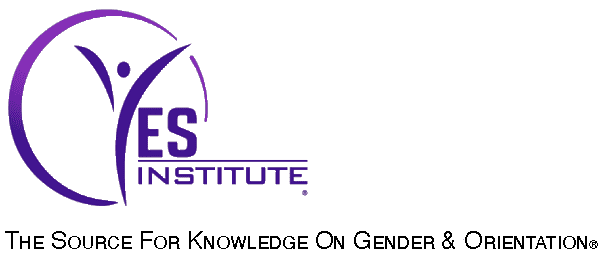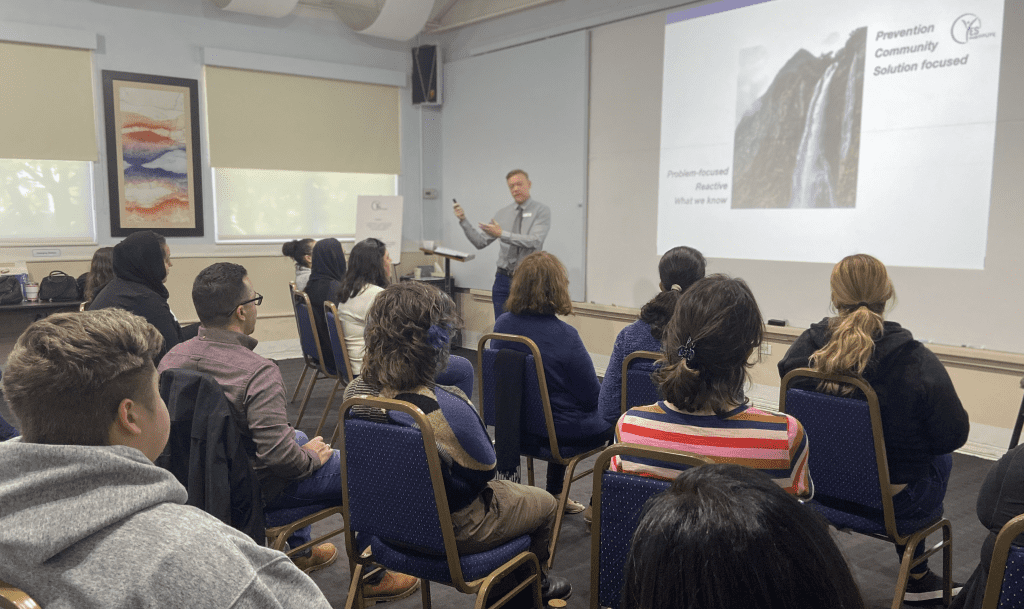What if we could build something new, together?
“[YES Institute’s Communication Toolbox] course really gave insight on how we can detach ourselves from our own agenda or try to prove right or wrong and find a bigger purpose to productively navigate through the situation.” – Teacher
There are about eight billion people in the world today each with their own perspectives, thoughts, and beliefs. If each person has a different view, is it possible for individuals and communities with seemingly opposing viewpoints to hear one another?
YES Institute’s team is invited to facilitate our Communication Toolbox™ in workplaces, schools, medical institutions, religious spaces, government facilities, and with the hospitality industry; we also provide this course to the public. Multiple schools have recently invited our education team as many are facing critical conversations around race, gender, and orientation at the school. Staff were seeking guidance and requesting tools to bring solutions to challenging conversations with parents and students. Some teachers noted that the current context of their school was one of argument and blame that only created more tension that stemmed from an agenda, making it difficult to reach a solution.
“I have a greater sense of how to converse with someone whose position may offend me or be harmful in a way that doesn’t diminish my own point of view.” – School Administrator
Throughout our courses, our team heard first hand the highly charged conversations based on a person’s identity, expression, body, and thoughts.
“Reinforces my role as a teacher to not dig into right/wrong viewpoints, even if I feel there is tons of evidence to support it, and to step back and truly listen and acknowledge other viewpoints, and to redirect conversations towards a higher purpose.” – Teacher
As Joseph Zolobczuk reminded us, “the issue is when we demonize someone who disagrees with us.” This closes a door to communication rather than invites a conversation. Part of the tools in the course include taking a deeper dive and understanding our own thoughts, patterns, and behaviors to shift our approach to uncomfortable conversations.
“At first it was hard to grasp the purpose of this (course), but as the examples went on and on, I not only understood it, I also felt it was useful; not only professionally, but personally, as well as with my interactions with students, coworkers and family members.” – School staff member
YES Institute’s communication model provides an alternative to the “I am right, and I will prove you are wrong” context and asks, “Is it possible to create something new together? What could it look like to hear one another, feel heard in the process, see one another, and be seen for your authentic self?”
“Power in diversity is so important, and listening to opposing or different viewpoints is so enriching if you drop your wrong/right biases, and communicate towards a common purpose. You don’t have to agree on everything. Respect other opinions even if they don’t seem to be based on strong evidence.” – Teacher
Communication Toolbox participants gain practical tools for relating authentically, working across lines of difference, and cultivating environments where all feel seen, heard, and included.
“I see that it will take time to unlearn what I’ve done for a long time. But I feel like it’s possible.” – Teacher
YES Institute invites everyone to discover these tools for themselves and apply our communication model especially as it relates to the safety and wellbeing of children. Children who are bullied are more likely to drop out of school, have lower academic achievement, and are at greater risk of experiencing anxiety, depression, and suicidal ideology—effects that can persist into adulthood. Children who report using bullying behaviors are over three times as likely to have multiple criminal convictions by their early twenties. What is being communicated by those who are labeled “bully” and “victim”? How do we respond? Can our responses become more effective if our listening is more attuned to the communication being delivered?
Join us for our course, “A Communication Called ‘Bullying’” on Saturday, May 20, 2023 from 9:00 am – 2:00 pm on Zoom. This course examines the phenomenon of “bullying” through the lens of communication.

